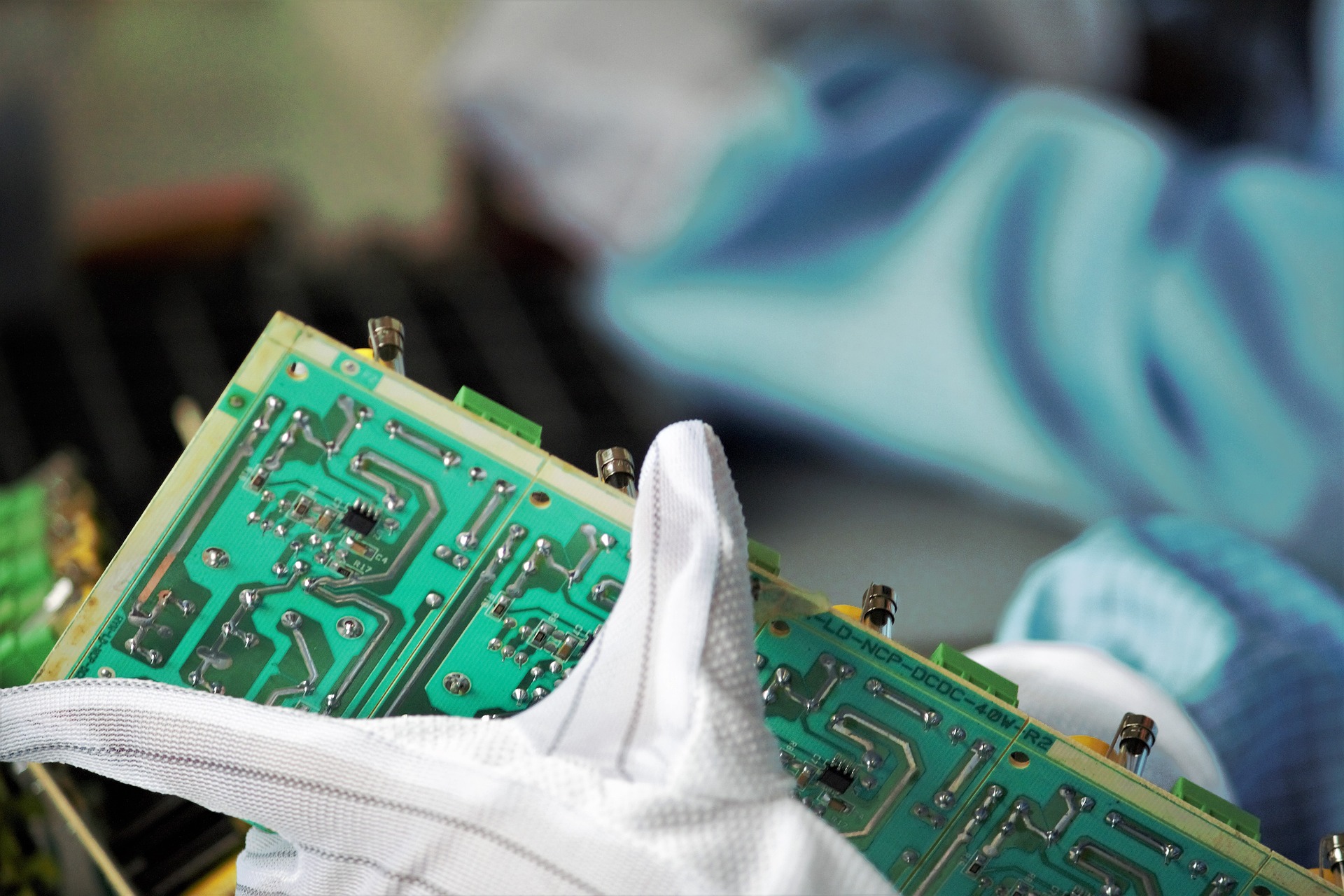In the June Sensible semiconductor news update, we pulled together some of the top news stories impacting the electronic component industry, including:
- Intel and Samsung see significant declines in Q1 2023 semiconductor revenue
- Smartphone market drops nearly 15% in Q1 reports
- Bosch buys TSI semiconductors
- Joint project tests stretchable, skin-like medical monitoring wearables
- Toyota warns about continued global chip shortage
- Automotive radar market forecast: 12% CAGR through 2028
- NIO advocates battery swapping for EVs: Fully charged batteries in just 5 minutes
- The German government considers restricting chip chemicals to China
Intel, Samsung See Significant Declines in Q1 2023 Semiconductor Revenue
In a year-over-year comparison, both Intel and Samsung saw huge declines in revenue from the semiconductor segment. Samsung was down by 49% and Intel by 36%. Lower demand for PCs, smartphones, and memory drove the downturn.
This is not good news following dismal results in Q4 2022 and layoffs. Intel’s CEO Pat Gelsinger noted that the company still beat industry projections and that there are signs the PC market is seeing increasing stability.
Despite the drop in semiconductor revenue, Samsung still turned a profit due to sales from home appliances, displays, and smartphones.
Smartphones Market Drops Nearly 15% in Q1 Reports
Despite Samsung’s profits from smartphone sales, the smartphone market also continues its downturn. The International Data Corporation (IDC) Worldwide Quarterly Mobile Phone Tracker for Q1 2023 marks the seventh consecutive quarter of declines. The 14.6% decline was higher than the forecast of a 12.7% decline.
IDC analysts express optimism about a recovery in the sector by the end of 2023, but said companies should expect “a tough three to six months ahead.” The largest declines were seen in the highly competitive mid-to-low end of the market where margins are low, so supply chain players in those spaces should anticipate this trend to continue.
The top 5 players in the market globally continue to be:
- Samsung
- Apple
- Xiaomi
- OPPO
- vivo
Bosch Buys TSI Semiconductors
Bosch has an agreement to purchase buildings, machines, and infrastructure from California founder TSI Semiconductors. TSI has about 250 employees at its site, which run 0.18 µm CMOS, HV, BCD, and DMOS processes.
Bosch is also investing $3 billion to expand semiconductor production capacity in three other locations.
Joint Project Tests Stretchable, Skin-like Medical Monitoring Wearables
A joint project by the U.S. Department of Energy’s (DOE) Argonne National Laboratory and the University of Chicago’s Pritzker School of Molecular Engineering (PME) is researching skin-like medical wearables. This would require a device to collect and process biometric data in an extremely small footprint with low power consumption.
Key challenges include integrating electronic components into a stretchable, wearable material requiring highly stretchable semiconductors made from a flexible material that can conduct electricity. The current focus is on a neuromorphic chip made of thin semiconductor film and gold nanowire electrodes. Early tests have shown a functional design with the ability to stretch the material to twice its normal size without cracking.
Toyota Warns About Continued Global Chip Shortage
While producing a record 9.1 million vehicles in FY 2022, ending in March 2023, Toyota is warning analysts that the continuing chip shortage makes it extremely challenging to predict future production moving forward.
The number of vehicles cut from automaker production schedules as an industry due to semiconductor and chip shortages has now exceeded one million. AutoForecast Solutions says North America, Asia, and Europe are all reducing production plans.
Automotive Radar Market Forecast: 12% CAGR Through 2028
Yole Développement is forecasting an auto radar market valued at $13.6 billion in 2028 with a compound annual growth rate (CAGR) of 12% through 2028.
Despite chip shortages, applications of gallium arsenide (GaAs) and silicon germanium (SiGe) to generate and amplify RF signals, digital signal processors (DSPs), and microcontrollers are mainstays in automotive radar.
Yole also reports the increasing trends beyond exterior radar sensors. Monitoring of car interiors continues to expand, including car occupant monitoring systems for passenger safety. Starting in 2025, a direct sensing method will be mandated under the European New Car Assessment Programme (NCAP).
NIO Advocates Battery Swapping for EVSs: Fully Charged Batteries in Just 5 Minutes
Chinese automaker NIO is taking a unique approach to charging electric vehicle batteries. Rather than charging on demand, it is deploying roadside stations using automation and mechanical arms that can reach under EVs, remove the depleted battery, and replace it with fully-charged batteries in about five minutes.
This directly focuses on one of the biggest complaints in the EV market: the time it takes to charge vehicles for use. Instead of a 20–60-minute charge, drivers can quickly swap batteries to keep replenishment times similar to fueling a gas-powered vehicle.
So far, stations have rolled out in China and Europe with plans to deploy in the U.S. market in 2025.
Other EV manufacturers remain skeptical. Reuters reports that a Tesla spokesperson says the approach is not suitable for widescale use. Still, NIO says 60% of its customers have opted for battery swapping at one of its 1,383 Chinese and European power swap stations. If this takes off, materials and technology manufacturers in the space should be prepared to pivot.
German Government Considers Restricting Chip Chemicals to China
Bloomberg reports that the German government is evaluating whether to limit the export of key chemicals required for chip production to China. The proposal offered by Chancellor Olaf Scholz would cut off access to goods and services needed by China for the production of advanced semiconductors.
If adopted, the measure would prevent German companies such as BASF SE and Merck KGasA from selling semiconductor chemicals to China. While still in the early stages, this would follow similar calls from allies, such as other European countries and the US, which are pushing for a global block of semiconductor technology and other key technologies to Chinese trading partners.
Stay Up-to-Date on Semiconductor News with Sensible Micro
The Sensible Micro team has deep industry connections and is always on the look for electronic component news to help you manage your business. Our robust global network often enables us to access critical insights early, even before many OEMs and manufacturers.
Stay informed with Sensible Micro with the electronic components industry news you need to prepare for what’s ahead.
News Sources:
















